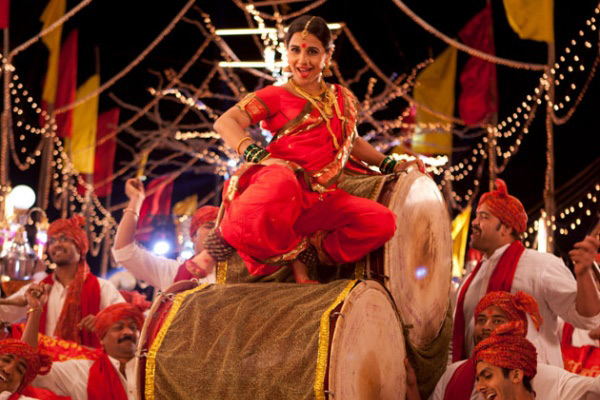For more on radio and music business news. | Click on RNMBiz

MUMBAI: A comparatively known form of music, Lavani originated in Maharashtra. Lavani can be categorised as Shringari lavani or Nirguni lavani. As the name suggests, shringari lavani explores the Shringar (Love) bhaav borderlining sensuality; whereas Nirguni Laavni is devotionally inclined. However, off late this form of music has only been known for its sensual content.
The origin of the folk form can be traced in the 16th century, but got its prominence in the Peshwa Rule. This form was developed to entertain soldiers or army men, who were away from their homes and families. Previously, men would dress up as women as present this Tamasha, literally meaning drama. However, during the Peshwa rule, this form went through drastic changes and women started performing, drawing parallels with the Mujras happening for Mughal army. Soon, the art form had its own grammar which was documented and till today the art form is practised, predominantly in rural areas of Maharashtra.
There are two basic broad forms of Lavanis, Phadachi Lavani and Baithakichi Lavani. Phad meaning a troupe, presents their performance for public on large platforms. Whereas, Baithakichi, literally meaning ‘of the sitting’ lavani is presented for a select audience where the presenter or the danseuse sits down in front of audience and performs. The other forms of Lavani are Andhartli Lavani (Lavani in the dark) or Chaukichi or bhedkichi Lavani (Heart piercing). However, Andhartli Lavani was banned due to it explicit and overtly bold content.
Lavani is a combination of narrative, which could be of socio-political relevance, singing and high-on energy performances by the female dancer. The narrative is usually a satire presented by a male actor known as nat, who are mostly eunuchs. The dance performances are set to the percussion instrument, Dholki.
With evolution, Lavani today is still presented at grass-root level and sometimes in urban set-ups under the folk-music bracket. The art form is known due to its heavy usage of it in movies. Be it Madhuri Dixit’s Main Kolhapur se aayi hoon or Vidya Balan’s Mala Jau De, these songs have depicted the Lavani form of music in Hindi movies. Marathi movies have had entire motion pictures made just on this art form. Be it V.Shantaram’s epic Pinjara or more recent Natrang. Each song in these movies have been popular. Lavani in Marathi movies have been sung by Asha Bhosale, Usha Mangehskar, Sulochana Chavan which got immensely popular and are still performed on widely.
The art form has given some of the most legendary musicians and performers. Currently, Yamuna bai Waikar, SatyahamaBai Pandharpurkar and Surekha Punekar are the veterans of Lavani.
The dance on Lavanis are extremely high on energy and can attain fast paced rhythm cycles. The danseuses are dressed peculiarly and decked up heavily to lure the audiences. The basic reason why the art form got the stigma is because the narrative and lyrics could be beyond the code of conduct or social decency. This art form was developed in a time and age when women were supposed to be under the veil. Also, in the beginning, a legit bidding would happen for women performers by male audiences and the performers were to perform on order. This process was called Daulat Jadda, which began in Mughal rule, for mujra performances. An otherwise rich art has been stigamised. However, government has taken cognizance of contributions made by Lavani artistes, even though sparsely, as some of the are awarded with prestigious awards.While this art form stays alive in the inetriors, some of the artistes of this form are known to be facing challenges to survive, no different story from other folk music forms.
The basic problem stays that it is too mainstream for the elite. However, there is more to this form that just gyrating and pelvic thrusts. It requires phenomenal performance quality, ability to hold the audience and sometimes sing and dance at the same time. No mean feat.
Lavani from the movie Sangte Aika sung by Asha Bhosale
Disla Gai Bai Disla
Madhuri Dixit’s Lavani in Anjaam